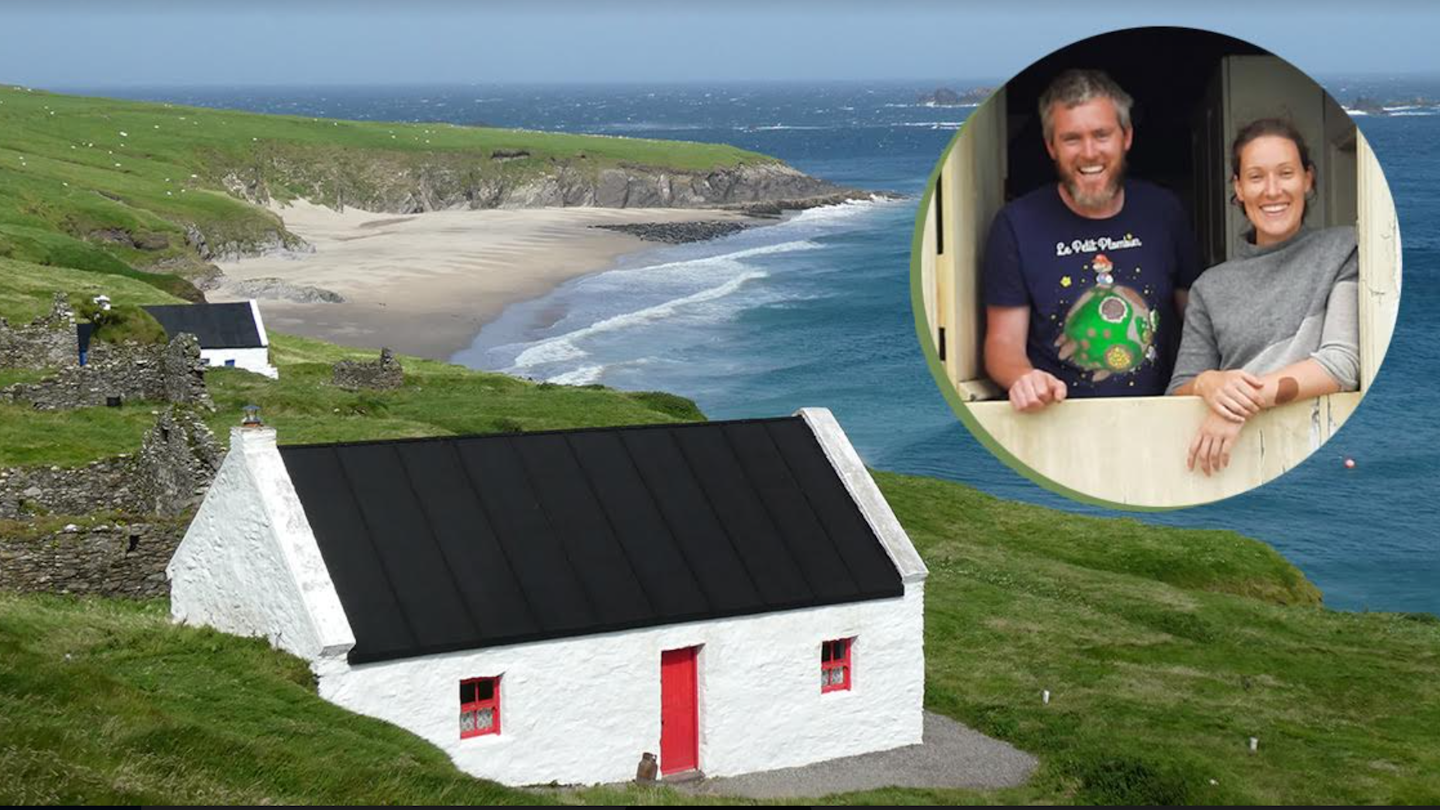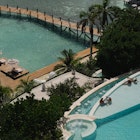
Jan 6, 2021 • 2 min read

Sep 24, 2020 • 7 min read

Eoin Boyle and Annie Birney moved from Dublin to work as caretakers on The Great Blasket island during tourist season ©Annie Birney and Eoin Boyle/The Great Blasket
In June, city dwellers Annie Birney and Eoin Boyle swapped their lives in Dublin to work as guesthouse caretakers on The Great Blasket Island – the most westerly point in Europe. It's a remote island with no electricity, TV or Wi-Fi but it boasts some of the best sunrises and sunsets in Ireland. Selected from a pool of more than 24,000 applicants from all over the world, winning the role has been a dream come true for them. But that's not to say it hasn't come without its challenges.
"The sun is splitting the rocks here. It’s just heaven on earth when the sun is shining and the sea is calm," says Annie. "We have the shepherds on the island today so we’re just making them a little cup of tea. They’ve had a hard day of bringing in sheep from the back of the island."

That snapshot of island life is as idyllic as it sounds. It's been three months since Annie moved to The Great Blasket with her partner Eoin, after they applied last year to become caretakers of the island's coffee shop and three guest houses during 2020's tourist season. But it's yet to sink in that they're actually here. Each time she looks out of the window of their cottage, Annie says she's blown away by the beauty of the place. "There's something about the way the mountains drop off into the sea," she muses. "And when the sun is out the colors of the island are so bright and beautiful. It's so spectacular."
Last year, the family-run company who oversees the island advertised for a couple to live there and manage its coffee shop and guesthouses. The post received massive publicity. More than 24,000 people applied after seeing images from the social media accounts of 2019's caretaker, Lesley Kehoe, who documented her time on the island with her partner Gordon Bond. But applying was like "throwing a needle into a haystack," for Annie and Eoin, who felt like they had a slim chance of getting through. Neither of them have a background in hospitality but their passion and interest was enough to get them over the line.

Growing up, the Blasket Islands, just off the coast of Kerry, loomed large in Annie's life. Her parents had encouraged a love of the west of Ireland by piling the family into their campervan every summer and touring the coast. Her father gave her a copy of An t‑Oileánach (The Islandman) by Tomas O'Crohan when she was young, a book that was written about life on the remote, Irish-speaking island before its last permanent inhabitants left in 1953. And for Eoin, who lives his life outdoors, the biodiversity of the island was too big a draw to resist. Before moving to the island, he taught people about wildlife and nature in schools. So when the job advertisement came up they felt they had to at least try. "Never in our wildest dreams did we think we’d be lucky enough to be living here. It’s that once-in-a-lifetime experience."

Life on the island was due to begin for them at the end of March but just as they handed in their notice at work, and told their landlord they'd be moving, businesses in Ireland began to close shop as the country went into partial lockdown. And what was supposed to be a six-month stint has turned into a three-month one. "At that stage in March everything was up in the air," says Annie. "For a while there we thought the dream was gone. But I think that makes every day that little bit special down here. You appreciate it more."
They made it to the island on June 23, shortly before the first guests began to arrive. With such a quick turnaround they had to throw themselves into the work straight away; preparing the holiday homes for guests who usually arrive at 2pm, after the previous tenants check out at 10am. "We didn’t have a background in turning around houses or cleaning them to a certain standard during a pandemic," Annie explains. "That said, my mam actually cleans a school and Eoin’s mother was a nurse by trade so between them they’ve given us some absolutely brilliant tips and tricks. It’s very satisfying work. You see the results straight away. Checking people into a little home for the night that you’ve made really clean and cosy for them. It’s lovely work in that sense. You’re helping people really enjoy the island."

Between 9am and 3pm, Annie and Eoin are busy cleaning the guest houses, keeping an eye on the coffee shop, boiling coffee on the gas burner and welcoming incoming guests. After that, there's normally an hour or two when the new arrivals may need help with lighting up their fires or tips for exploring the island. But then they're at their leisure for the rest of the evening; swimming in the sea or going for a walk around the 6km by 1.2km island. As it's so compact, you'd imagine they'd get to know the island pretty fast but Annie says there are so many different aspects to it, and different nooks and crannies that they're continuously surprised. "You never take the same walk twice. Depending on the time of year, and the time of day, the way the light hits the island is different. You never get sick of wandering around."
Living off-grid, the days fill up fast when you're constantly watching the light. There's no electricity on the island so the couple need to have their household chores done and dusted before the sun disappears over the hill. "You never want to be doing your washing up after dinner by candlelight," says Annie. Clothes and bed linens are taken off the island to be cleaned by its managers Alice Hayes and Billy O'Connor, who sail from the mainland every few days to collect laundry and deliver food and essential items to Annie and Eoin, who don't have a fridge to store perishable items. "Sometimes it's a challenge to live here even though we have so much done for us" says Annie. "We have so much respect for those people who lived here their whole lives and all year round as well, who raised families here and put dinner on the table and managed to keep everyone healthy with clothes on their backs."
With their time on the island due to wrap up at the end of the month, the couple are thinking about the next stage of their lives. Life on The Great Blasket has only intensified their desire to live in the countryside. The plan is to move to the west of Ireland, depending on what jobs come up, and continue to live with some of the habits and life lessons they picked up while living remotely. Lessons which would be familiar to anyone who has gone through lockdown. "You're kinda thinking in a different way out here. You learn good problem solving skills because you can't go down to the shops so you have to fix what you have or you have to find a good substitution," explains Annie. "I've changed the way I think about things. If I see an object, I'll think about three or four things it could be useful for."

"You reprioritise. You figure out what do you miss. You'd be surprised at the things that are important to you and the things you don't miss at all, and what you'd be willing to give up, let's say, if it meant you open your door in the morning and you see a certain view or you see the stars at night."
My Kerry: a very personal guide to Ireland's most beautiful county
The trip that changed my life: carefree campervan adventure in Scotland

Digital Nomad
Could you give up electricity and WiFi for a dream summer job on a remote Irish island?Jan 18, 2021 • 3 min read

Jan 6, 2021 • 2 min read


Feb 4, 2020 • 4 min read




Nov 20, 2025 • 8 min read


Oct 8, 2025 • 11 min read